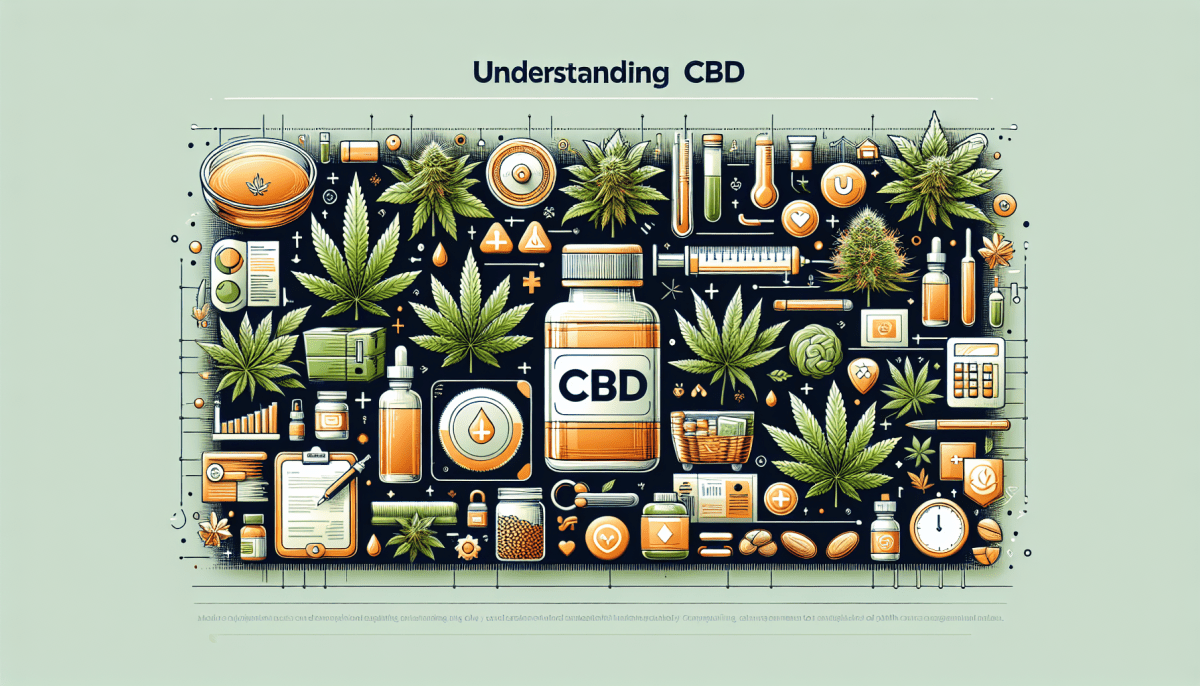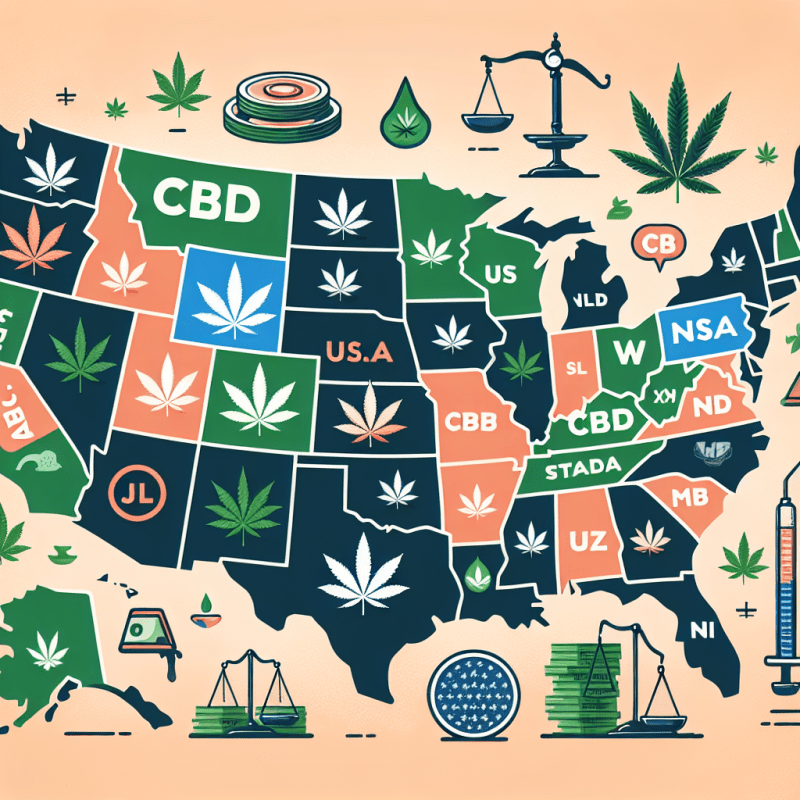How Does CBD Work? CBD interacts with the body's endocannabinoid system (ECS), which plays a crucial role in regulating various physiological processes. This system consists of receptors, endocannabinoids produced by the body, and enzymes that help break down these compounds. When CBD is consumed, it primarily interacts with two types of receptors: CB1 and CB2. CB1 receptors are mostly found in the brain and are linked to mood, pain perception, and memory, while CB2 receptors are primarily located in the immune system and influence inflammation and pain.
When CBD binds to these receptors, it helps to promote balance and homeostasis in the body. This can lead to a range of effects, such as reduced anxiety, improved mood, and alleviated pain. However, the way CBD works varies from person to person, and its effectiveness can depend on factors like dosage, method of consumption, and individual body chemistry.
Many people report finding relief from symptoms associated with chronic conditions such as arthritis, epilepsy, and anxiety. With ongoing research, scientists are continually discovering more about how CBD works and its potential applications in healthcare. This growing body of knowledge is helping to shape a better understanding of CBD and its benefits, making it an exciting area of focus in the world of natural health.
Healthy Skin, Healthy Mind! Buy One Get One Free on Body Care Products!
Key Health Benefits of Using CBD
CBD, short for cannabidiol, has gained popularity for its potential health benefits. Unlike its more famous cousin THC, CBD is non-psychoactive, meaning it won’t get you high. This makes it an appealing option for those looking to explore the therapeutic properties of cannabis without the mind-altering effects. Many users report a range of benefits, especially when it comes to managing health conditions.
One of the most widely recognized benefits of CBD is its ability to alleviate anxiety and stress. Many studies suggest that CBD interacts with the body's endocannabinoid system, which plays a crucial role in regulating mood and stress responses. People suffering from anxiety disorders have found relief in CBD products, allowing them to engage in daily activities with greater ease and comfort.
Pain relief is another advantage that CBD offers. Whether from chronic pain conditions, arthritis, or sports injuries, many users have turned to CBD as a natural alternative to traditional painkillers. Research indicates that CBD may help reduce inflammation and inhibit pain signaling in the nervous system, providing a safe option for those looking to manage their discomfort without strong pharmaceuticals.
Moreover, CBD has shown promise in promoting better sleep quality. Many individuals struggle with insomnia or disrupted sleep patterns, leading to a cycle of fatigue and stress. Preliminary studies suggest that CBD may help regulate sleep cycles by addressing underlying issues like anxiety and chronic pain. Users often report that they fall asleep more easily and enjoy a deeper, more restorative sleep when incorporating CBD into their routines.
Lastly, CBD is being explored for its potential neuroprotective properties. Some research indicates that it may help prevent or mitigate the progression of neurological disorders such as Alzheimer’s and Parkinson’s by reducing oxidative stress and inflammation in the brain. This aspect of CBD is particularly exciting, as it opens up new avenues for treatment and prevention of debilitating conditions.
Black Friday Sale - Shop Now to Get 25% Off with Code "K2C25"!
Different Forms of CBD Available
CBD, or cannabidiol, has gained immense popularity for its potential benefits and versatility. One of the exciting aspects of CBD is the variety of forms in which it is available, making it accessible for different preferences and needs. Whether you’re a newcomer or a seasoned user, understanding these various forms can help you make informed choices about how to incorporate CBD into your wellness routine.
One of the most common forms of CBD is oils and tinctures. These products typically come in small bottles with a dropper, allowing users to measure their desired dose easily. CBD oils are taken sublingually, meaning you place a few drops under your tongue for quick absorption into the bloodstream. This method is favored for its rapid effects and ease of use. Plus, oils can be added to food or drinks for a more subtle experience.
Edibles are another popular choice among CBD enthusiasts. Gummies, chocolates, and beverages infused with CBD offer a fun and tasty way to consume this compound. They come in a variety of flavors and dosages, making it easy to find something that suits your palate. However, it's essential to remember that edibles may take longer to take effect compared to oils because they must be digested first.
For those looking for localized relief, topicals like creams, balms, and lotions infused with CBD are excellent options. These products can be applied directly to the skin, allowing for targeted relief of discomfort or inflammation. Many users appreciate the soothing properties of CBD topicals, as they provide a way to enjoy the benefits without entering the bloodstream.
Lastly, CBD capsules and softgels offer a convenient, pre-measured option for those who prefer a straightforward approach. These forms are easy to incorporate into daily routines and are perfect for on-the-go lifestyles. Capsules and softgels typically require the same digestion process as edibles, so users should also expect a longer onset time.
Safety and Side Effects of CBD
As more people turn to CBD for its potential health benefits, it’s important to understand its safety and possible side effects. While CBD is generally considered safe for most individuals, it can cause some mild side effects. These may include tiredness, diarrhea, changes in appetite, and weight fluctuations. It's advisable to start with a low dose and gradually increase it, giving your body time to adjust.
One of the crucial aspects of using CBD is its interaction with other medications. CBD can affect how your body metabolizes certain drugs, which may lead to increased side effects or decreased effectiveness of those medications. If you’re on any other treatments, it’s wise to consult with a healthcare professional before starting CBD. They can provide guidance on the potential interactions and help monitor your health.
Another consideration is the quality of the CBD product. Not all CBD products are created equal; some may contain harmful substances or inaccurate dosages. Look for products that provide third-party lab testing, ensuring what’s on the label matches what’s in the bottle. Choosing reputable brands can help you avoid unwanted side effects and maximize the potential benefits of CBD.
Lastly, individuals with specific health conditions or those who are pregnant or breastfeeding should approach CBD with caution. Research on the effects of CBD in these populations is still limited, so it’s always best to err on the side of caution and consult with a healthcare provider. By being informed and cautious, you can safely explore the potential benefits of CBD.



